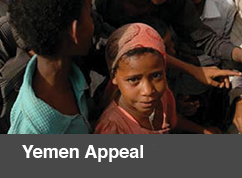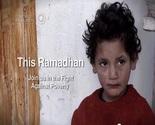This year several individuals, couples and families will be embarking on the spiritual journey of walking from Najaf to Karbala to commemorate Arba’een. These people from different parts of the world will unite to complete an 80km walk through war-torn Iraq from the holy city of Najaf to the land of Karbala. They shall walk for three days during the daytime with the scorching desert sun bearing down upon them and they will rest in the evenings in makeshift tents, when the blistering cold takes over as temperatures rapidly plummet.
 In March 2013, The World Federation launched the ‘Pakistan Genocide Appeal’ to raise awareness about and donations to care for victims and families of targeted killings in Pakistan.
In March 2013, The World Federation launched the ‘Pakistan Genocide Appeal’ to raise awareness about and donations to care for victims and families of targeted killings in Pakistan.
Wounded victims and grief-stricken families of those killed need support. Donations are used to cover a range of costs including medical treatments, ambulance charges, medicine, food, education and microfinance programs.
In January 2014, The World Federation provided 25 sewing machines along with sewing classes to widows, sisters, daughters and mothers of those breadwinners who were killed in targetted killings in District Dhera Ismail Khan in Pakistan.
The goal of this initiative was to assist women in developing the skill of sewing so that they could start their own home-based businesses to generate income to become self-sufficient.
Since the death of their husbands, brothers, fathers and sons, these families have been struggling financially and it is our hope that this new economic development program will allow them to achieve financial independence.
DONATE ONLINE: ‘PAKISTAN GENOCIDE APPEAL’
Donate in Europe
Donate in the rest of the World
JAMAAT TREASURER:
Donate directly to your Jamaat Treasurer
For more information, please email [email protected]
Related News
Share this video with your family and friends to raise awareness about poverty and encourage others to make a contribution to The World Federation’s ‘Ramadhan Relief Fund 1435’. You can turn despair into hope so easily.











